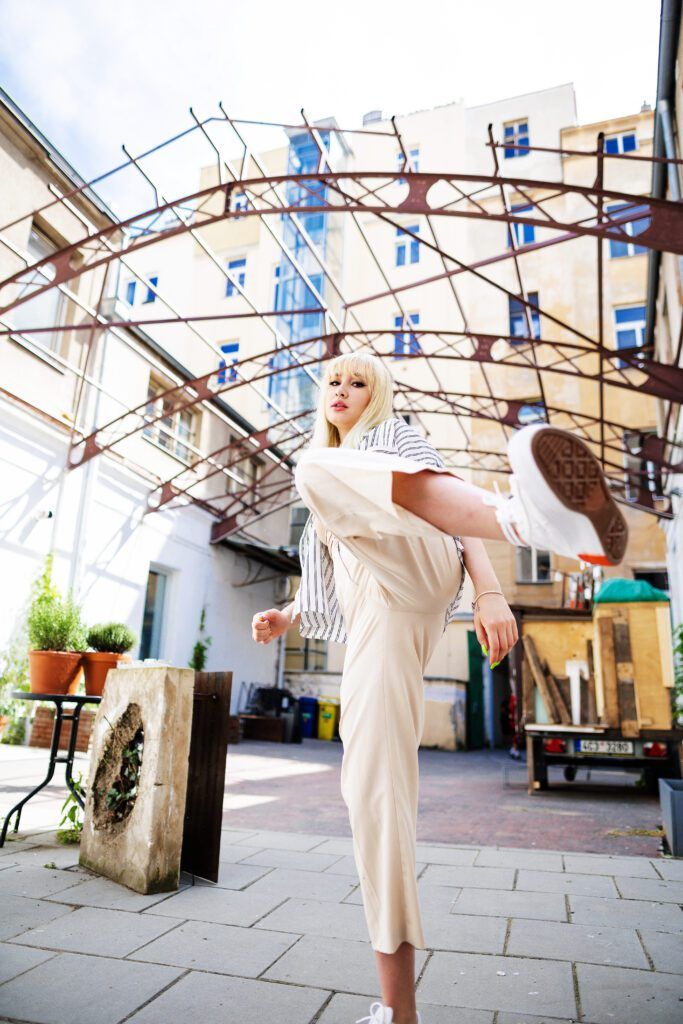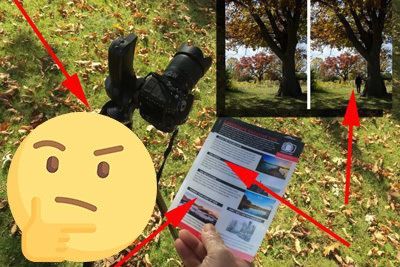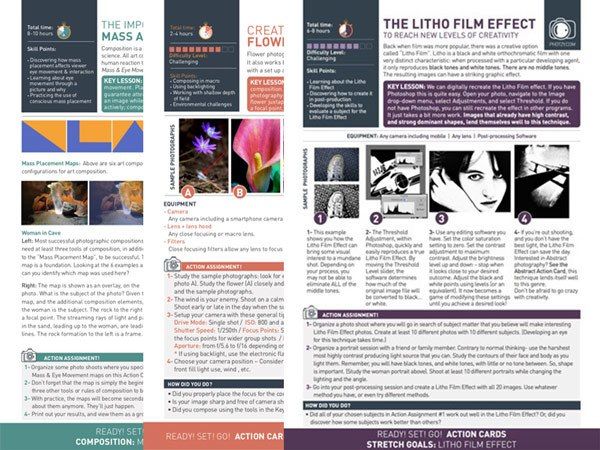There are billions of people living on our beautiful Earth, so the probability of someone disliking a photograph that you’ve (and I’ve!) taken is quite significant. Most of the time it’s not a big deal, like an anonymous profile commenting on your new social media post. The Internet gave freedom to so many people to express their opinions in the comments, that you shouldn’t put much weight on one small comment. Other times, you can be dealing with negative comments from your paid client asking for a refund or re-edit. You see, sometimes these comments can harm “just” our feelings, but other times they can damage our small businesses. This is when you need to learn what kind of critique you’re getting and how to deal with different types of problems you encounter when this happens. We’re all human, and negative feedback happens even to the best photographers! Remember, there is a right client for everyone: someone who is looking for just you, your style, your personality, your editing, your price, and all in all what you have to offer.
Today, we’ll cover:
- What main types of critique are there in photography?
- How can you solve unpleasant feedback situations?
- What rules can you implement to deal with critique better?
Recommended Reading: Want to expand your shooting skills and master photography? Grab our set of 65 beautifully designed and printable Action Cards that will give you over 200 photography assignments to help you take your photography to the next level. Check it out here.

Photograph by Ľudmila Borošová
Let’s learn more about the types of critique you can encounter on your photography journey, what they mean, how to prevent miscommunication, how to deal with the critique, and how to stay sane and learn from the situation if anything unfortunate like this happens. Let’s start with the least serious one – anonymous comments – and make our way to the real deal: paying clients.
Anonymous Comments That Don’t Really Matter
As we just outlined above, there are different types of critique that you can get on your photography. The most common one is commenting on social media! Some people seek comfort in online anonymity, and they lose their human boundaries when they can hide behind a fake username. It’s important to realize that while everyone has their own opinion, only a few people can find time to express it. Remember the saying: If you don’t have anything nice to say, don’t say anything at all. Truthfully, anonymous comments are usually from people that have their problems, and this is a way of making themselves feel better if you interact with them. That’s why, if you stumble across a comment like this, just ignore it. Their critique has nothing to do with your photography, and the anonym will sooner or later get bored!

Photograph by Ľudmila Borošová
The Honest Social Media Critique
If you’re posting your work on social media or into various online groups and communities, it probably doesn’t go unnoticed. As creators, we are no longer seeking happiness in numbers (the number of likes, shares, or followers). We want to spark conversation and connect with other people online, mostly via comments. That’s why they are one of the most important ways of engagement. One truly beautiful comment can mean more than 500 likes. But of course, sunshine isn’t everything we can find in the comment section.
As creators, we are no longer seeking happiness in numbers (the number of likes, shares, or followers). We want to spark conversation and connect with other people online, mostly via comments.
How do you avoid unwanted harsh comments? Specify your feedback preferences. It can be done with just a simple request or even turning off the comments. But sure, if you do that, you might be losing some positive feedback as well. The best way to do it is by facing the potential criticism and taking it as a new opportunity to learn. Disapproving the anonymous hate and embracing constructive criticism as an opportunity for growth is an enormous change in mindset! When posting your pictures online, just add a simple description: “Do you have any constructive criticism? Please let me know in the comments!” People will be willing to help you push your work to the next level, so you will get a completely fresh perspective. This will allow you to grow as a photographer and will scare away all potential anonymous haters.

Photograph by Ľudmila Borošová
Have you noticed that people are usually hesitant to reply to negative comments? You shouldn’t be. Learn how to distinguish between critique that doesn’t matter and critique that is aimed to improve your work. If anyone takes time to give you constructive criticism, take some time to say a few words back. It can be anything from appreciation or explanation to defense. It’s polite to reply, and you’ll get to practice your communication skills.
The Unsatisfied (Paying) Client
The most serious type of negative feedback is from your client. They say that “the customer is always right.” But maybe… you’re both right and you’re just not ideal for each other! So, what should you do if your client doesn’t like the photos you took? Examine the situation from a third perspective. Is the client being unreasonable, or is there some truth in their words?
First, focus on yourself. Is it the fault on your side? Try asking these questions: Did you understand the client’s perspective? Did you communicate clearly? Is there anything you could have done differently? Do you remember making the client feel uncomfortable on the photoshoot? Did you mess up the settings on your camera? Are the pictures blurry or unflattering? Does the skin tone match? Are they feeling consistent? Could you edit them differently? Come up with more questions that could lead you to what went wrong on your side.

Photograph by Ľudmila Borošová
Now, focus on your client. Was the client a price-catcher or genuinely interested in your work? Did the client see your portfolio before booking? Did he or she have unreasonable requests that were not covered by the contract? Sometimes, the client just wants to complain, be heard, and get a refund (e.g. photos for free), and other times they might be genuinely upset. Work with the situation and use common sense. If you messed up, offer a refund or another photoshoot. If you did five portraits and the client thinks that the coloring is off, provide them with a solution (e.g. a re-edit), not a refund. If you delivered 500 pictures from a wedding and they want to change something on each of them or do more retouching, explain that these services cost extra and that you’d be happy to provide them. Setting clear boundaries will be beneficial for both you and your customer.
If you messed up, offer a refund or another photoshoot. If you did five portraits and the client thinks that the coloring is off, provide them with a solution (e.g. a re-edit), not a refund.
It’s crucial to realize that personal messages can often lead to public reviews, so always talk to your clients with respect. Your business survives based on your online presence, and even if you feel like this one customer isn’t right, act professionally. You’ve been building your name for years, and you shouldn’t throw it away with one unfortunate situation.
So, What Can You Do to Learn How to Deal With Critique?
Avoid Making It Happen
Set clear expectations from the beginning. Take your time to truly understand what your clients want and show them what you offer. Let me show you how I deal with my wedding inquiries! After the bride contacts me, I always make sure to set up a nonbinding meeting in a local café. I talk with her about the wedding plans, share interesting insights from my experiences, and show her my work. We understand each other’s expectations and we are aligned for future work! After the booking is done and the deposit is received, I also send out a wedding questionnaire with all kinds of questions that will help me do my best work. Questionnaires can help with all photoshoots, not just on big gigs! Make sure to create your own and send it to your clients.
Be Your First Critique
It’s always very unpleasant when someone doesn’t like your work. It can hurt one’s feelings easily. That’s why it’s important to get used to critique and not to see your work through rose-tinted glasses all the time. Be your constructive criticist and find three things you could have done better on each photoshoot. There is always something you can improve, and it will help you build mental strength and better your photography.

Photograph by Ľudmila Borošová
Create a Reply Template
Always be prepared for negative comments or reviews with a personalized template. It’s better to come up with the right words when you’re calm and prepare for an emergency. You will feel much calmer dealing with your clients and online comments when you know what you have up your sleeve.
Never Hide the Reviews
Negative reviews are unpleasant, and they can scare people away, but they aren’t as bad as unmanaged communication. Don’t ignore your customers; instead, admit your mistakes and act professionally. Words speak volumes, and it’s even truer when you see brands communicating with clients. As a photographer, you do your PR. Make it count! The way you handle replies to negative comments can be a deal-breaker.
Don’t Forget to Spread the Love
Do you remember how you felt when you received a comment saying that your pictures were beautiful? The butterflies in your stomach are real. Even better, can you imagine someone telling you that you’re an inspiration to them? Or that your work is what they keep looking forward to? It doesn’t take much to make someone happy. So, if you feel like you have something nice to say, just say it. A few years ago, I resolved that I would compliment people more often. I’d write to random social media managers that they were doing a good job. I’d compliment photographers, models, makeup artists… but also regular people I met on the street.

Photograph by Ľudmila Borošová
In general, you should stop focusing on what might be wrong with your photos. They are capturing a special moment – the one second in the universe that’s never coming back. Look at your photographs realistically and distinguish between critique that’s unimportant, the critique that’s an opportunity to get better, and critique that might potentially harm your business, and deal with them differently. Make a difference with your photos and your choice of words concerning other people’s work. Don’t be afraid to compliment; look forward to getting complimented and don’t be afraid to take constructive criticism.
Recommended Reading: Want to expand your shooting skills and master photography? Grab our set of 65 beautifully designed and printable Action Cards that will give you over 200 photography assignments to help you take your photography to the next level. Check it out here.
Self-Check Quiz:
- Should you take critique from online anonyms seriously?
- What can you do that’ll make online anonyms bored?
- What do you think is constructive criticism?
- How can you specify your feedback preferences?
- Why is it important to act professionally when dealing with a client?
- What are some of the questions that’ll help you find the true issue when a customer is unhappy?
- How can you set clear expectations before the photoshoot?
- How can you get prepared for online comments and reviews?
- Should you hide online reviews? Why?
- How can you spread happiness instead of online critique?
- Let’s try a seven-day challenge of compliment-giving to all online creators that inspire you. For the next week, try sending a nice message to at least two inspiring people each day! It doesn’t have anything to do with photography, but it will help other creatives tremendously.
- Create a questionnaire that you can use in all your sessions. Do a separate one for portraits, senior shoots, weddings, etc. Customize them to your needs and make sure that you send them out to your clients before they book you!
- Open your last photoshoot and find three things that you could have done better. What are they? How do you feel after giving yourself constructive criticism?














